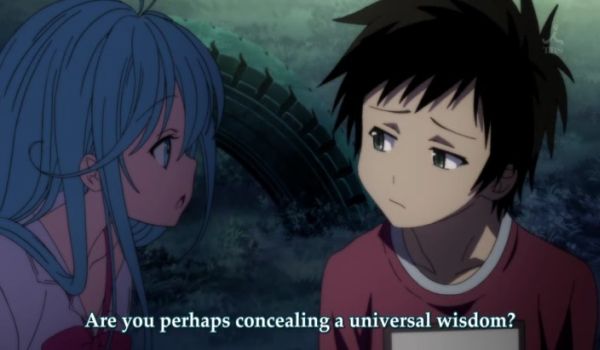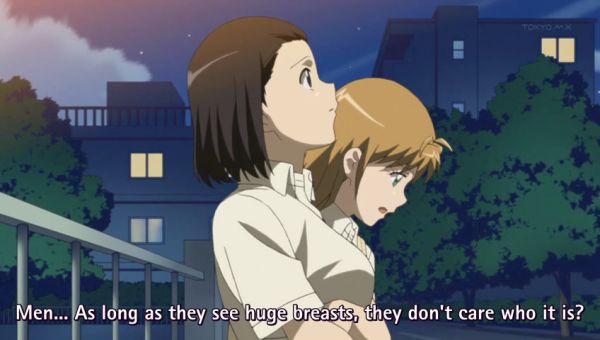
Are you perhaps concealing a universal wisdom? And if so, how would you know?
Recently I read in a book that is substantially holier than me, about seeking God within. It made a commentary that this was the opposite of introspection. I agree, although there are other opposites of introspection too.
Introspection, as I see it, is looking into your own personality, or “soul with a name”. This is the person we call “I”, and we feel responsible for what this person does and says and, if we are extra serious, even what it thinks. So when we look at the thoughts we have or have had, and how we feel etc, that is introspection. It is looking at our conscious self, although it may have been less conscious than it could have been – that is what we are trying to correct, perhaps.
But the inner world does not only consist of this person, the “I”. There is a lot of activity in there. The subconscious is far larger than the conscious, at least for most of us. Nearly all of us. There may theoretically be some amazing people who are so enlightened and so thoroughly conscious that they occupy their entire brain, but I doubt there is one in each millennium, if there ever were any.
The popular view of the subconscious is roughly identical to Freud’s “Id”: The unfinished basement of our psychological house, where we hide all the things we don’t want to have in the daylight. Mostly sex, if Freud is to be believed, which he certainly shouldn’t be. While Freud was picking apart his patients’ dreams looking for sex symbols (because putting an umbrella in a suitcase is totally a graphic depiction of coitus), C.G. Jung noticed to his surprise that some of the dreams were strikingly similar to well known myths in other cultures, myths that were completely unknown to all but a few researchers in Europe. (This was before the age of the Internet. Today, anyone may have picked up anything. This means we could never have had a discovery like that in our age.)
Sometimes, Jung noticed, people would come across persons in their dreams or daydreams that were far wiser than themselves, although their wisdom was often coached in symbols or poetry that the dreamer had to unpack through a conscious effort. It was, in other words, voluntary (and not easy) to absorb the insights that already existed inside them. It was as if ordinary people had limited themselves to a small part of what they could really have been. Inside them were skills and insights and knowledge that they were not even aware they had.
This, incidentally, is the case also with some patients with “multiple personality syndrome”. In actual life, there is an unknown number of people who have multiple personalities but don’t seek medical treatments, because they get along fine with themselves, and find their multiplicity a strength rather than a weakness. Naturally they soon find out that almost everyone else think it is insane, so they don’t disclose it.
But even among those who do have problems with their multiple personalities (for instance one personality may refuse to share information with the rest, leaving blank spots in their memory, or actively try to hurt their relationships or even their bodies) – even in such cases, it is amazing how much the personalities can vary. They can have completely different skills, and in some cases they even have separate allergies! That sounds like a miracle, or the opposite of a miracle perhaps, whatever that is. But in most cases, the sum of the “alters” Â is more than one normal person. In some cases, each personality can be pretty close to normal, and yet they are different, so it really is like there are different people sharing the same brain.
I mention this because you probably think that you are using your brain pretty well, and your subconscious is just a dusty basement with trash you’ve kicked downstairs and shut the door. Chances are there are skills and knowledge and abilities down there which are quite a match for what you have achieved in your waking life, unless you are somewhat of an overachiever. It may even be that some of your energy is spent on denying abilities you actually have: There is at least one documented example of a person who could not draw or paint, but after a brain damage began painting beautiful paintings. Not started learning to paint after the brain damage, but suddenly could do so. They had already had the skill but locked it in the basement. OK, here is an article with a long list of such people and a theory of how.
I know that during my first epoch of deep “emptiness” meditation, in my 20es, I began to be able to think in music. To this day it is pretty common that the “voices in my head” sing songs I have never heard before, either without words or with words in a known or unknown language. I don’t have the skill to write down the music, and I don’t plan to specialize that way, so it disappears after a while. It is no big deal: There will be new music later, probably. So far there has. But I think I would rather be me than to have a stroke or a crushing blow and become able to compose!
But as you can see, the subconscious is not really a corner of your mind. It is like a door that opens to some vastly larger place than your mind. At first it may seem like a mansion, then as a landscape, a planet, finally an expanding universe. There is no reason why the inner world should not be much larger than the visible universe: The possible connections in the human brain exceed the number of molecules in the known universe, or at least so I read when I was young. The thing is, perhaps it is not created by our brain at all? When we look out the window, there is frantic activity in the back of our brain, in the visual cortex. But we don’t usually assume that the brain actually creates the world we see outside our window. Why exactly do we assume that the brain creates all our subconscious content?
Well, what do I know. But it is a topic that would baffle you if you took it seriously. It is a bit like discovering that your wardrobe is a doorway to another world, isn’t it? ^_^ Of course, some of us like it here in the safe zone.









